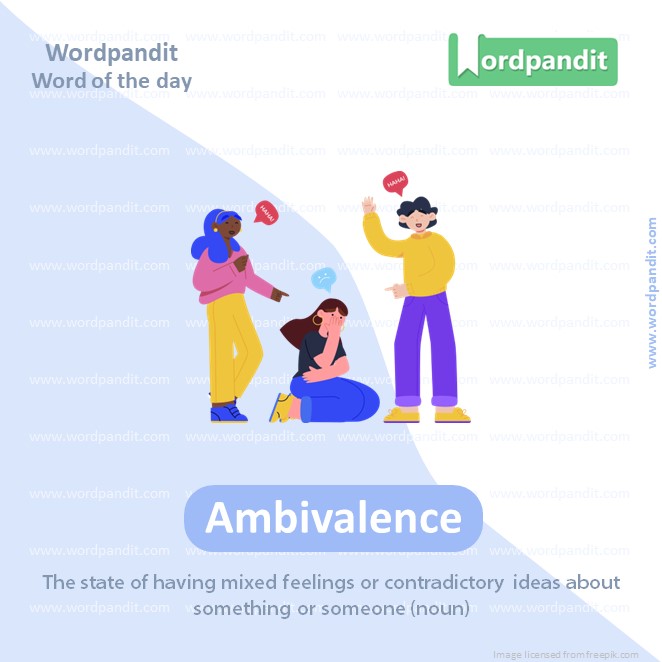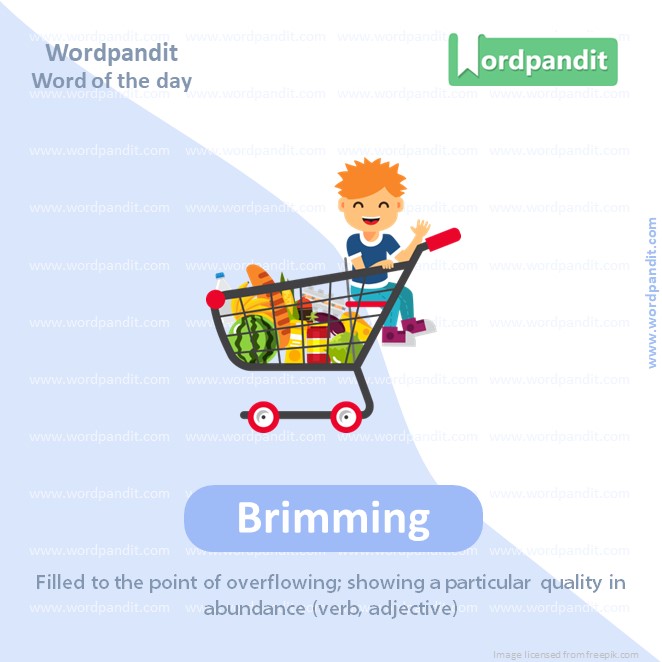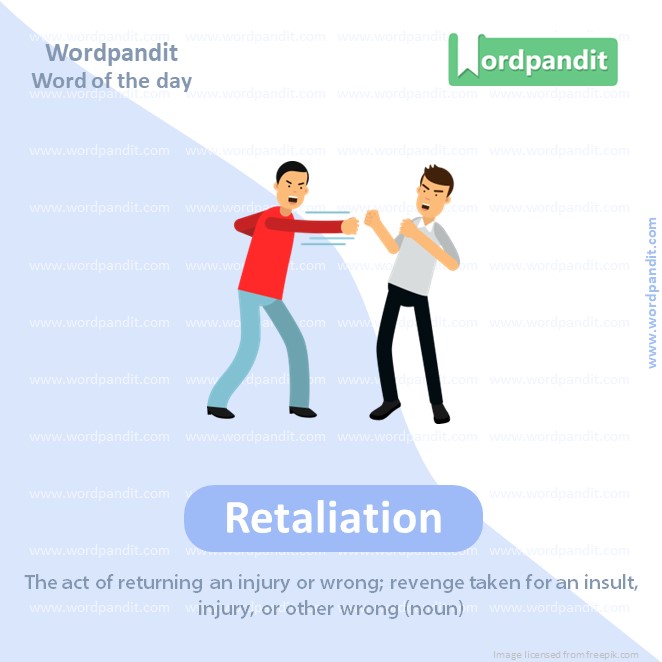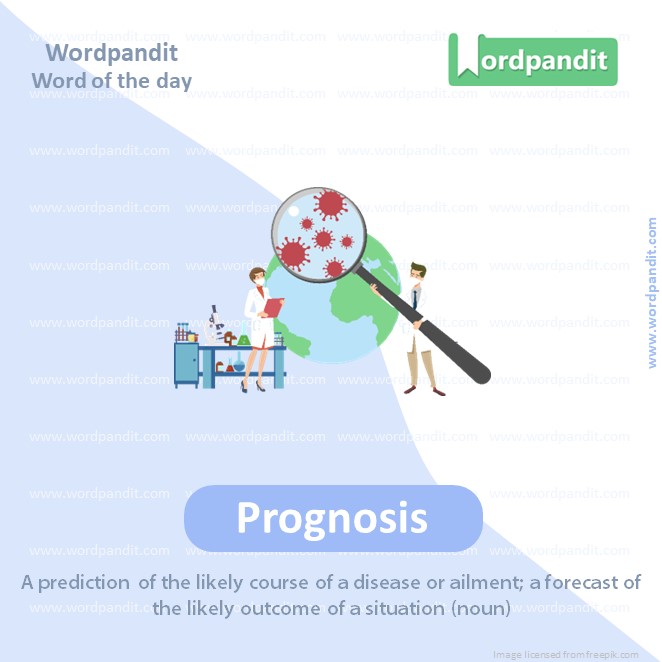Daily Vocabulary from Indian Newspapers and Publications
Welcome to Wordpandit’s Indian Vocabulary Hub
At Wordpandit, we understand the importance of staying rooted in the local context while expanding your language skills. This section focuses on enriching your vocabulary with words and phrases drawn from India’s leading newspapers and publications, ensuring you're learning vocabulary that is practical, relevant, and uniquely Indian.
Why Indian Sources Matter
We believe that the best way to master any language is by immersing yourself in local content. That’s why we carefully curate vocabulary from top Indian publications, including:
- The Hindu
- The Times of India
- The Economic Times
- Hindustan Times
- Live Mint
- The Indian Express
- And many others...
Stay Updated, Stay Relevant
With daily updates from Indian news sources, you’ll be consistently learning words that reflect the trends and shifts in Indian society and culture. Our focus is to provide vocabulary that enhances your understanding of the language in an Indian context.
How Wordpandit Supports Your Goals
Whether you’re preparing for exams, aiming to improve your professional communication, or simply want to stay connected with the latest Indian vocabulary, Wordpandit is here to guide you every step of the way.
Learn with a Practical Approach
Our interactive learning methodology includes real-world examples, engaging activities, and context-specific usage to ensure that every word becomes part of your active vocabulary.
Dive into Indian Vocabulary Today!
Why Choose Wordpandit?
Practical Learning: Focus on words you'll actually encounter in real-world reading, enhancing your comprehension and communication skills.
Diverse Content: From current affairs to scientific breakthroughs, our varied sources expose you to vocabulary across multiple domains.
Effortless Integration: Make Wordpandit a part of your daily routine. Just a few minutes each day can significantly boost your lexicon over time.
Your Path to Vocabulary Mastery
- Visit our Daily Vocabulary section regularly
- Explore new words and their usage in context
- Practice incorporating these words into your own writing and speech
- Track your progress as your vocabulary expands
Start Your Journey Today
Embark on your vocabulary enhancement journey with Wordpandit. By consistently engaging with our daily posts, you'll build a robust vocabulary that serves you well in academic, professional, and personal contexts.
Remember, a word a day keeps linguistic limitations at bay. Make Wordpandit your daily companion in the quest for vocabulary excellence!
WORD-1: Ambivalence
Context:
"It is the overwhelming power of this moment, and the fact that we now inhabit a political universe solely dominated by power, that expressing even ambivalence about this pran pratishtha seems more like blowing straws in a hurricane." - Indian Express
Explanatory Paragraph:
Ambivalence refers to having mixed feelings or contradictory ideas about something or someone. When you're torn between opposing attitudes or emotions—like love and hate, or support and skepticism—you’re experiencing ambivalence. In the context above, expressing even a hint of uncertainty or mixed emotion about a powerful political moment seems almost futile, as if one’s opinion would be swept away by the dominant narrative.
Meaning: The state of having mixed or contradictory feelings about someone or something (Noun)
Pronunciation: am-BIV-uh-luns
Difficulty Level: ⭐⭐⭐ Intermediate
Etymology: From German "Ambivalenz", coined in early 20th century, from Latin "ambi-" (both) + "valentia" (strength, worth)
Prashant Sir's Notes:
Ambivalence is a key word for understanding human psychology and social behavior. It often shows up in situations where people feel torn—politically, emotionally, or morally. In debates and nuanced discussions, noticing ambivalence helps us see the complexity of viewpoints.
Synonyms & Antonyms:
Synonyms: uncertainty, indecision, hesitation, doubt, conflictedness
Antonyms: certainty, decisiveness, clarity, confidence
Usage Examples:
- Her ambivalence about the job offer made it difficult to make a decision.
- He felt ambivalence toward the idea of moving abroad—excited yet anxious.
- The movie portrays the character’s emotional ambivalence with great sensitivity.
- Public ambivalence about climate change often hinders collective action.
Cultural Reference:
"The opposite of love is not hate, it's indifference. The opposite of beauty is not ugliness, it's indifference. The opposite of faith is not heresy, it's indifference." – Elie Wiesel. Ambivalence is a powerful emotional state that sits right between love and hate, engagement and detachment.
Think About It:
Can ambivalence be a sign of deeper awareness, or does it always indicate indecisiveness? When is it okay to be ambivalent?
Quick Activity:
Think of a recent decision you struggled with. Write down two opposing feelings you had. Try to express that ambivalence in a short paragraph using the word “ambivalence.”
Memory Tip:
Think of “ambivalence” as “ambi-” (both) + “valence” (feelings/values). If you have *both feelings* about something—you are ambivalent!
Real-World Application:
Understanding ambivalence is crucial in fields like politics, counseling, and marketing, where people's conflicting emotions influence their actions. Leaders often have to navigate public ambivalence on policies, while therapists help clients confront emotional ambivalence in relationships or decisions.
WORD-2: Brimming
Context:
"The dazzle of AI has blinded the BJP government to the state of the bottom 20 per cent because it has the unflinching support of a steel frame called RSS; its coffers are brimming with money thanks to the rich corporates and electoral bonds." - Indian Express
Explanatory Paragraph:
“Brimming” describes a state of being full to the top, often overflowing. It can refer to physical containers, like a cup brimming with tea, or metaphorical ones, such as emotions brimming in someone’s heart or resources overflowing in an organization. In the sentence above, it suggests that the BJP’s coffers are overflowing with funds, indicating wealth or abundance, especially due to corporate support and electoral bonds.
Meaning: Filled to the top or almost overflowing (Verb/Adjective)
Pronunciation: BRIM-ing
Difficulty Level: ⭐⭐ Easy
Etymology: From Old English "brymme" meaning edge of a cup or vessel, related to the idea of being full to the brim
Prashant Sir's Notes:
“Brimming” is a vivid word often used to convey intensity—whether it's joy, anger, money, or emotion. It helps paint a picture of abundance or emotional overflow. Always link it with imagery: a glass, a heart, or in politics—coffers and power!
Synonyms & Antonyms:
Synonyms: overflowing, teeming, full, abundant, packed
Antonyms: empty, drained, depleted, scarce
Usage Examples:
- Her eyes were brimming with tears of happiness.
- The basket was brimming with fresh fruits and vegetables.
- He entered the room brimming with confidence.
- The donation box was brimming after the charity event.
Cultural Reference:
"Brimming with love, India welcomed Barack Obama during his visit." – In diplomatic reporting, the word is often used to show emotional or ceremonial intensity.
Think About It:
Is being “brimming” with something always a good thing? Can excess—of money, emotion, or power—be as dangerous as scarcity?
Quick Activity:
Complete the sentence with creative imagery: “The room was brimming with ___.” Try using emotions, people, sounds, or even scents.
Memory Tip:
Think of a cup filled “to the brim” — now imagine it slightly overflowing. That’s “brimming”! Link it with the visual of full and spilling.
Real-World Application:
"Brimming" is often used in media, literature, and everyday speech to show intensity or abundance. It can describe emotional states (“brimming with pride”), wealth or resources (“brimming with funds”), or even environments (“a city brimming with energy”).
WORD-3: Retaliation
Context:
"We are now more valorous devotees of Ram — more than Tulsidas or Gandhi, who rejected the logic of retaliation." - Indian Express
Explanatory Paragraph:
Retaliation refers to the act of striking back or responding to a harm, injury, or attack with similar action. It's the concept of revenge or payback — doing to someone what they did to you. In the sentence above, the writer contrasts current attitudes with historical figures like Tulsidas and Gandhi, who stood against revenge and believed in forgiveness and non-violence rather than reacting with retaliation.
Meaning: The act of returning an attack; revenge or counterattack (Noun)
Pronunciation: ruh-TAL-ee-ay-shun
Difficulty Level: ⭐⭐⭐ Intermediate
Etymology: From Late Latin “retaliatio” meaning repayment in kind, from “retaliare” – to pay back or revenge
Prashant Sir's Notes:
Retaliation is a crucial concept in both politics and ethics. In exams and debates, this word often appears in discussions on conflict, justice, and diplomacy. Remember: retaliation is reactive. The real strength lies in whether one chooses to retaliate or rise above it.
Synonyms & Antonyms:
Synonyms: revenge, retribution, payback, reprisal, vengeance
Antonyms: forgiveness, pardon, peace, reconciliation
Usage Examples:
- The army launched an airstrike in retaliation to the border attack.
- Gandhi’s philosophy was firmly against any form of retaliation.
- The company faced retaliation from consumers after its unethical practices were exposed.
- He remained calm, choosing dialogue over retaliation.
Cultural Reference:
“An eye for an eye makes the whole world blind.” – This quote, often attributed to Mahatma Gandhi, challenges the idea of retaliation and emphasizes non-violence as a powerful alternative.
Think About It:
Is retaliation always a sign of strength, or can it be a failure of emotional control? How do we decide when to respond and when to rise above?
Quick Activity:
Write a short dialogue where one character wants to retaliate and another advises against it. Try to use “retaliation” and its related forms at least twice.
Memory Tip:
Retaliation = Re (again) + Talion (law of retaliation) → “Getting back again.” Think of it like a mirror response—what you give is what you get.
Real-World Application:
Retaliation is frequently discussed in geopolitics, workplace conflict, and school bullying. Understanding its impact helps promote peaceful resolutions and informed decision-making in personal and public life.
WORD-4: Narcissism
Context:
"We are consecrating our own collective narcissism in the image of God." - Indian Express
Explanatory Paragraph:
Narcissism refers to excessive self-love or self-centeredness, where someone becomes overly obsessed with their own image, importance, or desires. It can apply to individuals, but also to groups or societies. In the context above, the writer suggests that society is glorifying itself—worshiping its own reflection—under the guise of religious symbolism. It’s a powerful critique of vanity disguised as devotion.
Meaning: Excessive self-interest or admiration of oneself, especially one’s physical appearance or achievements (Noun)
Pronunciation: NAR-suh-siz-um
Difficulty Level: ⭐⭐⭐⭐ Advanced
Etymology: From Greek mythology — Narcissus was a youth who fell in love with his own reflection in a pool of water and eventually wasted away; the term entered English via Latin in the early 19th century
Prashant Sir's Notes:
Narcissism is more than vanity — it's a psychological trait that can influence personal behavior and political or cultural dynamics. In writing and analysis, it's often used to describe societies that become obsessed with their own greatness, ignoring deeper truths or flaws. It's an insightful word in critiques and essays.
Synonyms & Antonyms:
Synonyms: self-absorption, egotism, vanity, self-obsession, conceit
Antonyms: humility, modesty, selflessness, altruism
Usage Examples:
- His narcissism made it difficult for him to maintain genuine relationships.
- The leader’s speeches were full of narcissism, focused more on his image than the issues.
- Social media can sometimes encourage narcissism by rewarding constant self-promotion.
- The novel critiques the narcissism of modern consumer culture.
Cultural Reference:
In Greek mythology, Narcissus was so enchanted by his own reflection that he couldn’t look away — a tragic symbol of self-obsession. The term “narcissism” is now widely used in psychology and pop culture, especially in the age of selfies and social media.
Think About It:
Can a society be narcissistic? What happens when entire cultures begin to celebrate themselves excessively without introspection?
Quick Activity:
List three behaviors that might be considered narcissistic in today’s digital world. Then rephrase one of them into a sentence using the word “narcissism.”
Memory Tip:
Think of “Narcissus” staring into the water, obsessed with himself. Narcissism = Narcissus + obsession with self. Picture a person lost in their own selfie!
Real-World Application:
Narcissism is a key concept in psychology, leadership studies, and media critique. It's used to explain toxic behaviors in relationships, corporate culture, and even politics. Understanding it can help foster healthier social dynamics and self-awareness.
WORD-5: Prognosis
Context:
"There are moments in history that appear to drive wave after wave of people in a great torrent of catharsis, ecstasy, emotion and an elevated group mood that almost all conventional analysis, historical categories, moral measures and political prognosis seem beside the point." - Indian Express
Explanatory Paragraph:
Prognosis is a prediction or forecast, especially concerning the likely outcome of a situation. Though often used in medical contexts to predict the course of a disease, it's equally applicable to political, economic, or social scenarios. In the sentence above, the writer reflects on emotionally charged historical moments where traditional political forecasts or logical analyses become irrelevant in the face of overwhelming collective emotion.
Meaning: A forecast or prediction about the likely outcome of a situation, especially in medicine or politics (Noun)
Pronunciation: prog-NO-sis
Difficulty Level: ⭐⭐⭐ Intermediate
Etymology: From Greek "prognōsis" – ‘foreknowledge’, from "pro-" (before) + "gnōsis" (knowledge)
Prashant Sir's Notes:
Prognosis is not just a medical term. In exams, current affairs, or essays, it can be used to discuss political predictions, economic forecasts, or societal trends. A powerful alternative to the word “prediction,” especially in formal and analytical writing.
Synonyms & Antonyms:
Synonyms: prediction, forecast, outlook, projection, estimation
Antonyms: hindsight, uncertainty, ignorance, unpredictability
Usage Examples:
- The doctor gave a hopeful prognosis for her recovery.
- Analysts offered a grim economic prognosis after the market crash.
- Despite political turmoil, the prognosis for stability remains cautiously optimistic.
- His prognosis of the climate crisis was alarmingly accurate.
Cultural Reference:
During the COVID-19 pandemic, the term “prognosis” became part of everyday vocabulary, as people constantly looked to doctors and scientists for the prognosis of patients, the virus, and even global recovery.
Think About It:
Can a prognosis shape the outcome itself? In what ways do our expectations for the future influence the decisions we make in the present?
Quick Activity:
Choose any current issue (e.g., climate change, elections, AI). Write a two-sentence prognosis for it. Try to use formal and analytical language.
Memory Tip:
Prognosis = Pro (before) + Gnosis (knowledge) → “Knowledge before it happens.” Think of a doctor or analyst giving insight into the future!
Real-World Application:
“Prognosis” is widely used in medicine, politics, business, and media. Whether it's a doctor predicting recovery, an economist forecasting GDP, or a strategist analyzing election results, prognosis is central to planning and decision-making.



















